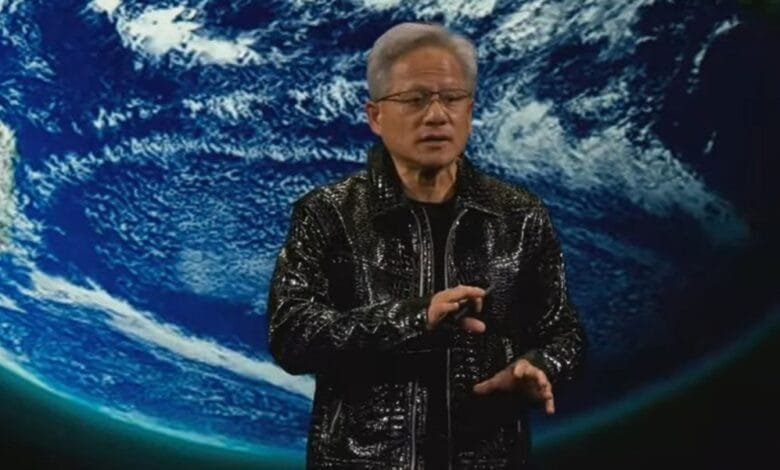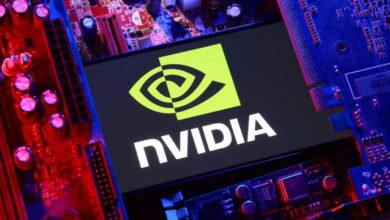Nvidia CEO Slams U.S. AI Chip Ban on China

▼ Summary
– Nvidia CEO Jensen Huang criticized U.S. export restrictions on AI chips to China, citing a $4.5 billion loss due to the H20 chip ban.
– Huang argued that China’s AI market is vital for global success, but U.S. policies have effectively closed it to American companies like Nvidia.
– He warned that export controls strengthen Chinese chipmakers and weaken America’s competitive position in AI infrastructure.
– Huang praised the Trump administration for rescinding the Biden-era AI Diffusion Rule, which he believed stifled U.S. innovation.
– The Trump administration plans to promote U.S. AI technology with allies while restricting adversaries, but Huang noted the Hopper chip business in China is permanently ended.
Nvidia’s CEO has voiced strong concerns about U.S. restrictions on AI chip exports to China, arguing the policy harms American competitiveness while failing to curb China’s technological progress. Jensen Huang made the remarks after his company took a $4.5 billion financial hit due to the sudden ban on H20 AI chip sales to Chinese customers earlier this year.
Huang emphasized that China represents one of the world’s largest AI markets, home to roughly half of global AI researchers. “The platform that succeeds in China gains a decisive edge worldwide,” he noted. However, the U.S. export ban has effectively shut American firms out of this $50 billion market, forcing Nvidia to abandon its Hopper data center business in the region. “We’re left with billions in unsellable inventory,” Huang explained.
Contrary to U.S. assumptions, Huang stressed that China already possesses the capability to develop advanced computing solutions independently. “The real issue isn’t whether China will have AI technology—it already does,” he said. “The question is whether the world’s leading AI market will rely on American platforms. By blocking competition, we’re only accelerating China’s self-sufficiency and weakening our own position.”
Huang warned that export controls risk pushing global AI talent toward alternative ecosystems, undermining U.S. leadership. “This isn’t just about chips—it’s about which technological stack dominates as AI evolves,” he argued. “China has massive manufacturing capacity. If U.S. policies push developers away, we lose the battle for AI supremacy.”
Despite his criticism, Huang acknowledged a recent policy shift as a positive step. He praised the Trump administration’s decision to rescind the AI Diffusion Rule, a Biden-era measure that would have restricted exports of AI model weights and advanced computing components. “The previous rule would have stifled innovation,” Huang said. “Now, there’s a clearer path for American companies to compete globally.”
The reversal could benefit U.S. firms and allied nations by easing AI technology transfers, though the administration has signaled it will still block exports to strategic rivals. Huang expressed confidence in the White House’s approach but reiterated the challenges Nvidia faces. “The president has a vision, and I support it,” he said. “But for us, the Hopper era in China is over.”
(Source: VentureBeat)


